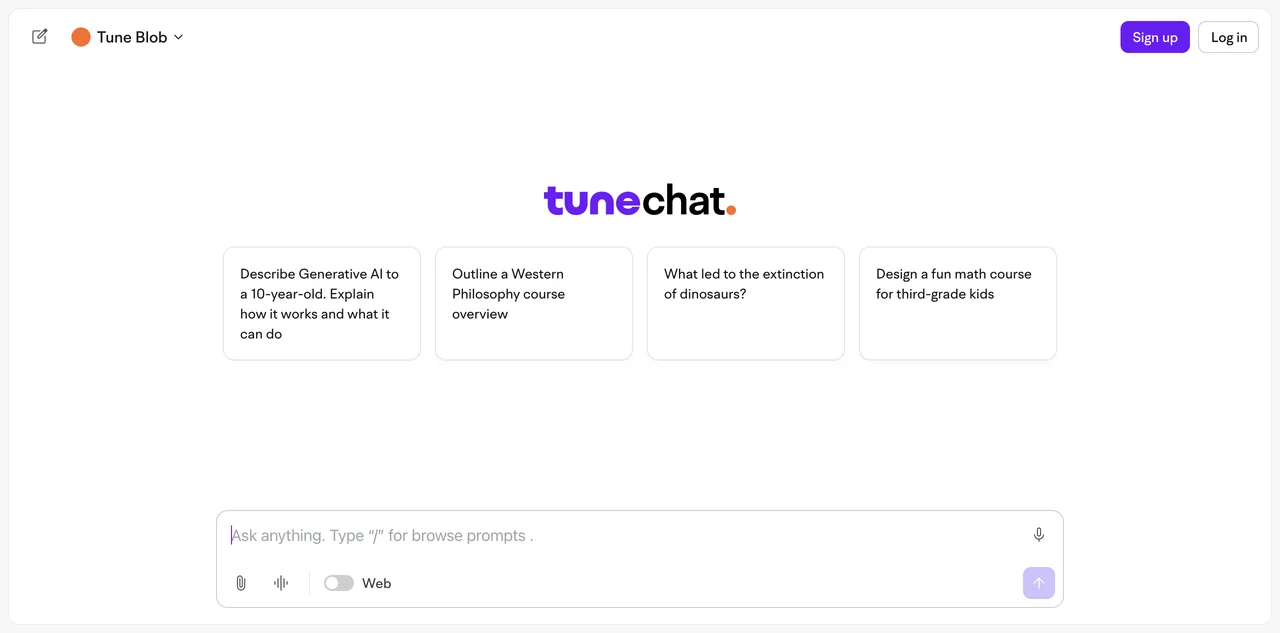Tune Chat represents a significant leap forward in the realm of digital communication, leveraging the power of open-source large language models to facilitate more engaging, intelligent, and context-aware conversations. This innovative chat application is designed to bridge the gap between human-like interaction and technological efficiency, providing users with a platform that not only understands but also anticipates their communication needs.
At its core, Tune Chat utilizes advanced natural language processing (NLP) techniques to interpret, generate, and manage text in a way that mimics human conversation. This allows for a seamless exchange of ideas, information, and queries, making it an invaluable tool for both personal and professional use. Whether you're looking to brainstorm ideas, seek information, or simply engage in casual conversation, Tune Chat offers a responsive and intuitive interface that adapts to your communication style.
One of the standout features of Tune Chat is its ability to integrate with various open-source large language models. This not only ensures a high degree of flexibility and customization but also keeps the application at the forefront of AI technology. Users can benefit from the latest advancements in AI research, enjoying enhanced accuracy, context understanding, and conversational depth.
Moreover, Tune Chat is designed with privacy and security in mind. Understanding the importance of data protection in today's digital age, the application employs robust encryption and data handling practices to safeguard user information. This commitment to security, combined with its cutting-edge AI capabilities, makes Tune Chat a reliable and forward-thinking choice for anyone looking to enhance their digital communication experience.
In summary, Tune Chat is more than just a chat application; it's a gateway to the future of communication. By harnessing the power of open-source large language models, it offers a unique blend of intelligence, adaptability, and security, setting a new standard for what we can expect from digital conversations.

